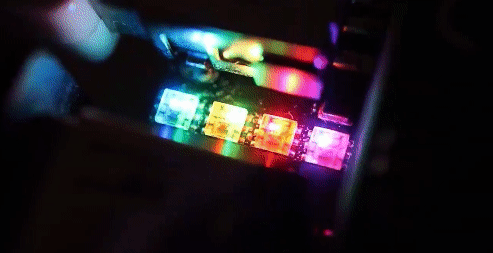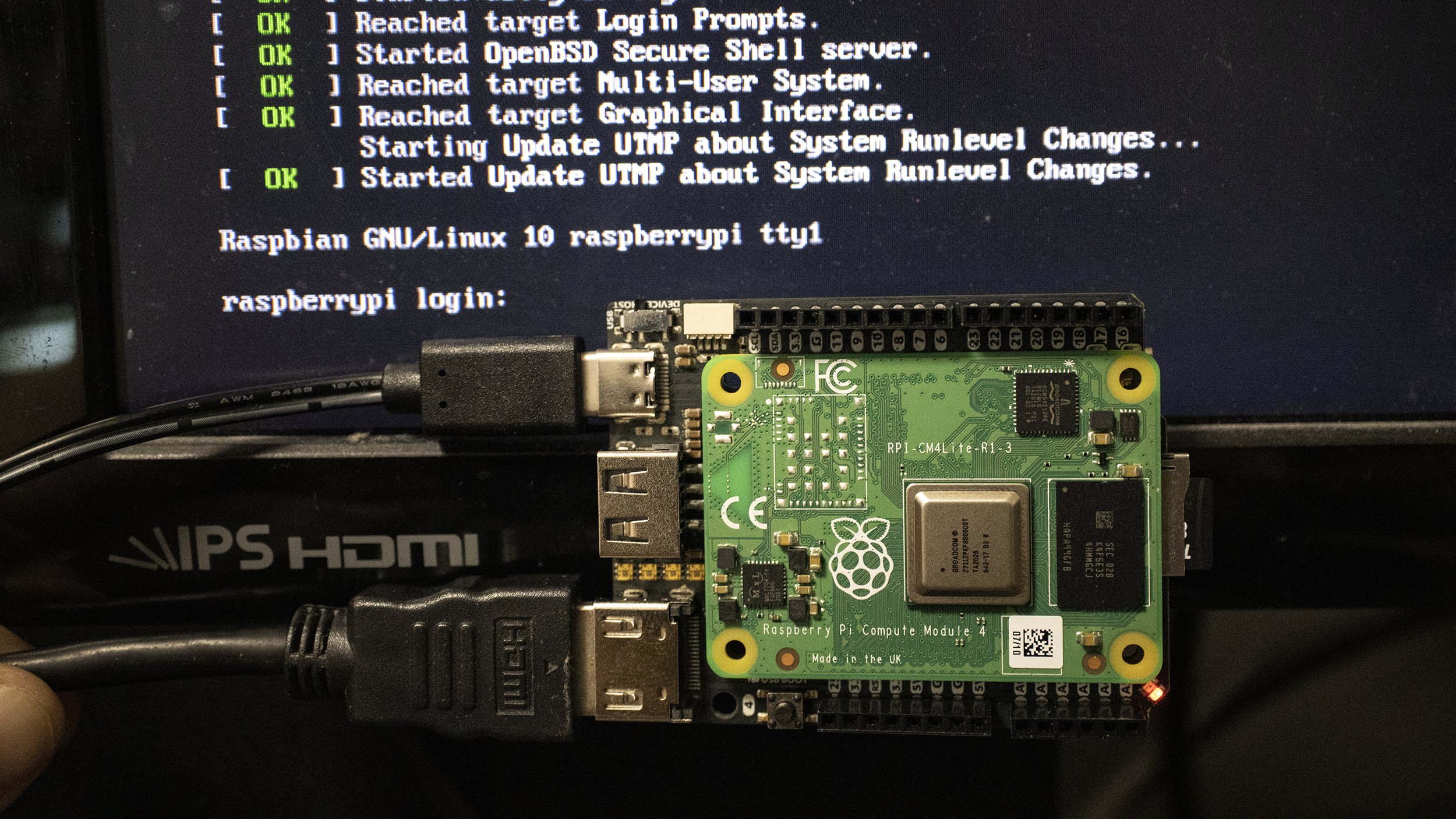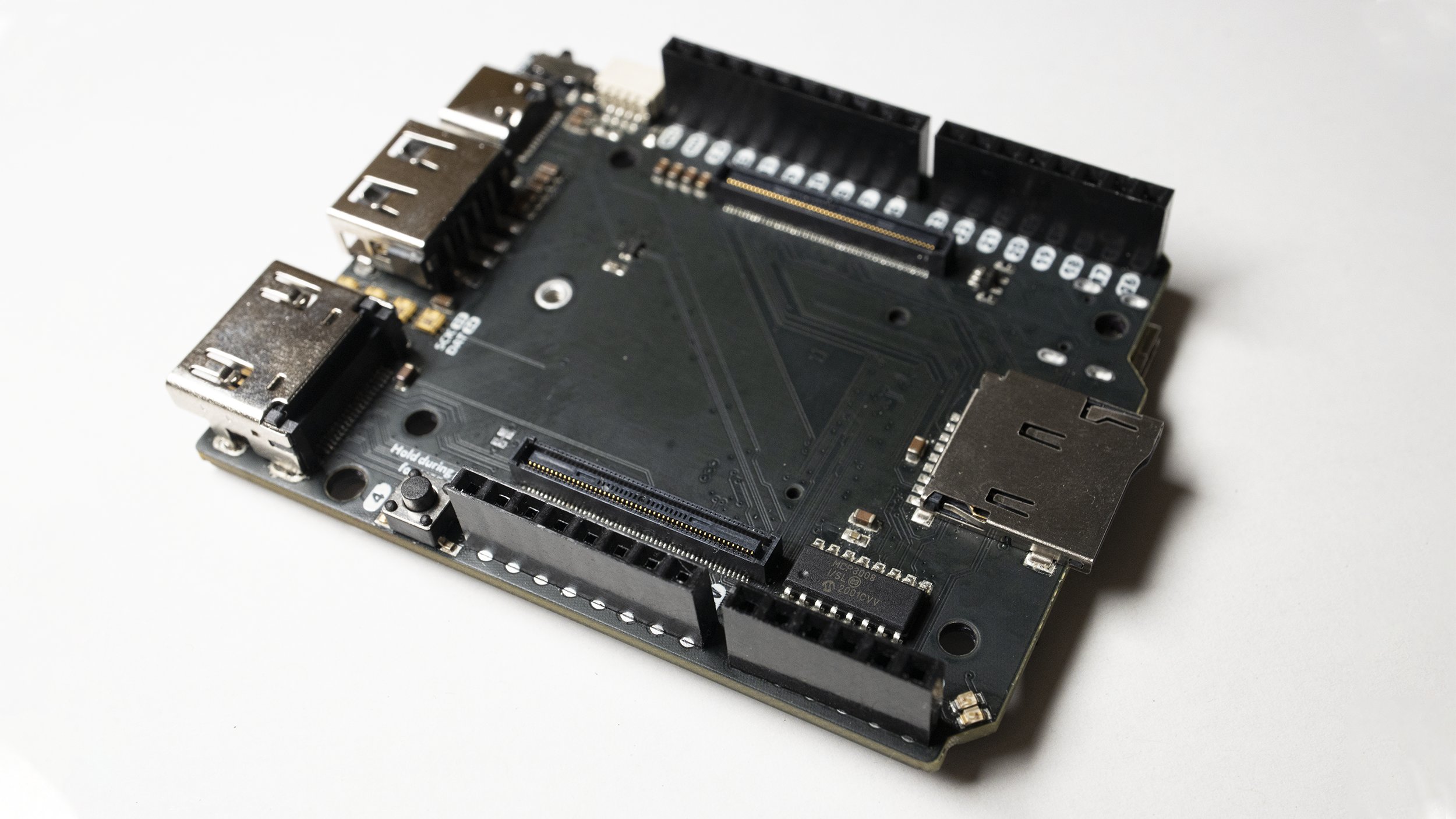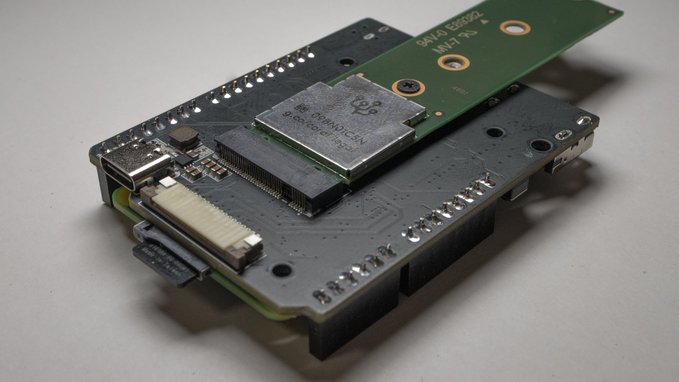Raspberry Pi Compute Module 4 Squeezed Into Arduino Form Factor
The size of an Arduino, the power of a Raspberry Pi 4
The Raspberry Pi Compute Module 4 introduced a new form factor, doing away with the previous SO-DIMM in favor of a new connector with a much denser pin count. The official carrier board for the Raspberry Pi Compute Module 4 is quite large; it has to provide all of the functionality developers require. Twitter user @TimonSKU has created Piunora, which sees the Raspberry Pi Compute Module 4 mounted to a carrier board that resembles an Arduino Uno R3 layout.




Piunora is a carrier board; it breaks out the GPIO, HDMI, USB, and power connections from the Broadcom system on Chip (SoC) and enables the Compute Module 4 to be used as if it were a typical Raspberry Pi, albeit in an Arduino Uno R3 / Adafruit Metro form factor.
Piunora provides a full-size HDMI port with support for up to 4K60 resolution, USB C for data and power, a single USB port, and a connector for Qwiic / Stemma QT components. The GPIO also provides a generous number, but not all the GPIO pins present on a Raspberry Pi. Still, we do have six analog inputs, provided via an MCP3008 ADC chip, something lacking from a typical Raspberry Pi.
The most interesting part of this board is on the underside. Flipping Piunora over, we see an M.2 PCIe interface enabling the use of super-fast NVMe storage or the use of add-ons such as Google's Coral Tensor Processing Unit. Extra fun features include four APA102 RGB LEDs, which can be controlled using Adafruit's CircuitPython Python library.
This is a carrier board for the @Raspberry_Pi CM4.It has USB-C for power, HDMI, USB-A and microSD.All on a single copper layer without any vias or even solder mask.The point being, this is not as scary as you might think it is. Don't be intimidated, you can do this too🙂 pic.twitter.com/Osx7g4bi1aNovember 11, 2020
This isn't TimonSKU's first attempt at a carrier board. In November 2020, he created his first Compute Module 4 focused carrier board. A truly simple approach that was made on a single layer of copper and hand-soldered.
Right now, there is no price for Piunora, but Timon hopes to release the board as an open source hardware (OSHW) qualified board, enabling many to download and fabricate their own boards.
Get Tom's Hardware's best news and in-depth reviews, straight to your inbox.

Les Pounder is an associate editor at Tom's Hardware. He is a creative technologist and for seven years has created projects to educate and inspire minds both young and old. He has worked with the Raspberry Pi Foundation to write and deliver their teacher training program "Picademy".